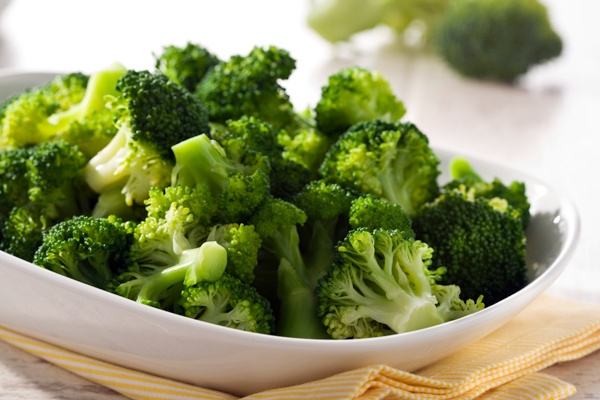So you've finally hit your goal weight! Or perhaps you've been cutting calories for more than a few months and need a temporary diet break. But where exactly do you go from here? How can you start to add in more of your favorite foods and loosen up restrictions without destroying your progress?
It's understandable that after all of your hard work, you're worried about weight regain. Day-to-day weight fluctuations and changes in weight throughout your life are entirely normal. Also, gaining a few pounds over time is nothing to worry about. It's when all of the weight creeps back, or all of it and then some.
Weight maintenance will look a little different than your old ways before you started dieting in the first place, and it is the true test of finding a healthy balance and learning what moderation looks like.
If you're not sure where
What Causes Weight Gain?
Many people fear that restricting calories at low levels for weight loss will damage their metabolism, and once they start eating regularly again, they will immediately gain the weight back. But the number one cause behind weight gain is not a destroyed metabolism, it's poor calorie control and not having a handle on what a proper maintenance diet should look like (1). Hitting your goal weight is not a license to go back to your old eating habits. Doing so this will only cause you to go back to your old weight.
Diets are not a quick fix, you really do need to consider sustainable lifestyle changes that you can keep up with.
Yes, eating a calorie deficit for months at a time may cause your metabolism to slow down... but only temporarily (2,3). It is pretty hard to destroy your metabolism since it is largely based on your current weight, not the food you eat. Moreover, losing weight means you are naturally going to have a lower basal metabolic rate (BMR) because you weigh less and it takes fewer calories to move around a smaller object.
You will have to eat fewer calories than you did before you lost weight, but you don't have to go hungry or continue to cut calories to low levels. The trick is to figure out how many calories you need each day to maintain your new weight and stay consistent with that amount.
How Many Calories to Maintain Weight?
You can figure out how many calories you need each day to maintain your weight the same way you figured out how many calories you needed to lose the weight in the first place— just without the deficit offset.
Use an online calculator like the one here:
Or, you can do the math yourself and quickly estimate with these two steps:
Step #1 - multiply your current weight by one of the following
- Women = weight in lbs. x 10
- Men = weight in lbs. x 11
Step #2 - Add in exercise and daily activity by multiplying by one of the following
- 1 - Little to no exercise.
- 1.1 - Light exercise or training 1 to 3 days per week.
- 1.2 - Moderate exercise 2 or more days per week.
- 1.4 - Hard exercise 3 or more days per week.
- 1.6 - Working out 2 or more times a day.
If your maintenance calories feel pretty far away from your current intake, or you've just been on a very low-calorie diet for a few months now, it might be a challenge to increase your calories to maintenance right away. Instead of going straight to maintenance calories, start by slowing increasing your calories by about 200 calories a day and give it a few weeks to even out. If your weight stays pretty stable after three weeks, add another 100 to 200 calories a day and repeat until you reach your true maintenance level.
Once you've got a handle on how many calories you should be eating, use the following tips to stay on track and help all of your hard work stick.
1. Stay Consistent
We talk a lot about consistency when it comes to weight loss, and that's because being consistent in whatever health change you are making is the best way to see results. However, consistency also applies to maintain fat loss. Also, it's not so much sticking to a change, as much as it is establishing daily habits and patterns that set you up for success.
Track your calories

You've probably been tracking your calories for a while now and starting a maintenance diet is no reason to stop. Once you start upping your intake, it's key to check in often and see how many treats and added splurges are affecting your daily calorie intake.
You don't have to track every single day forever. However,
Eat breakfast
Sticking to an eating routine is a great way to keep your intake reasonably controlled. Whether it is eating at the same times most days or even eating piratically the same thing every day, having structure and systematizing your eating habits can do wonders for your health. Mainly because these routines themselves give us a framework and guidelines to adhere to, without having to obsess over calories and portion sizes. It can help you manage your appetite, energy levels, and overall diet better.
Breakfast, specifically large and high-protein breakfasts, have been linked to improved appetite throughout the day, blood sugar control and better calorie control overall (4,5,6,7).
If you've been on an eating pattern for the past few months, try staying somewhat close to that.
2. Exercise Often

You've likely included some exercise as part of your weight loss efforts, so why stop now? Staying active is a great way to keep your weight under control because it means you are burning more calories and putting your increased food intake to good use. It's
How much exercise you need to maintain weight loss can depend on the person and the type of exercise you are doing. Some studies suggest thirty minutes per day where others recommend at least an hour a day is needed to support weight maintenance (11,12). Regardless, just moving more or staying active in general seems to be helpful.
It's also important to consider that exercise is most effective when included as part of an overall healthy lifestyle approach - meaning you can't just exercise away a bad diet (13).
Lift Weights
When it comes to the types of exercise, lifting weight might have unique benefits because it helps you build and maintain muscle.
Building more lean muscle mass is one way to slightly increase your metabolism and support higher calorie intake. It might even help you burn more fat in the long run (14). Lifting weights are also the best way to get that lean, shredded look you might have been going for in the first place. If you haven't been doing any type of strength training so far, now is a great time to start.
3. Eat More Protein
Many fear that changing their macro intake, especially after a low carb diet, is going to cause immediate weight gain. However, while some changes in water retention may occur, changes in your macros won't cause fat gain - only excess calories can do that (15)!
However, if there is one macro to focus on, it's protein. High-protein diets have been associated with many positive weight management benefits.
Protein is the least likely of all the macros to be stored as fat in a calorie surplus (16,17). Also, its positive effects on appetite suppression and lean muscle make it a perfect match for dieters (18,19,20). Higher protein diets may also curb cravings, helping you to control your calorie intake better overall (21).
Aim to get at least 30% of your calories from protein or learn exactly how many grams of protein you need each day and focus on quality sources.
4. Cut Back on Processed Foods
1adc.jpg)
Heavily processed foods tend to be a source of empty calories and are often loaded with added sugar (22). Empty calories are calories lacking in nutritional value or health benefits, making them an ideal place to cut when needed.
While weight management ultimately comes down to calorie control, studies have linked processed food intake, and added sugar intake in particular, with higher body weights and potential increased risk of weight gain (23,24).
Studies also suggest that decreasing your intake of heavily processed foods may be more beneficial for weight management. One such study found that your body may burn twice as many calories digesting simple foods compared to heavily processed foods (25). Also, growing research continues to suggest that eating a diet consisting of mostly whole foods is associated with better weight outcomes (26).
5. Load Up on Non-Starchy Veggies
Vegetables are the opposite of empty calories, providing a ton of nutrition for very little energy - meaning you get much more out of your diet for fewer calories. Stacking your plate with more low-calorie veggies can help keep you satisfied without sacrificing portion size. For example, two cups of broccoli are only 60 calories, compared to two cups of cooked pasta at almost 500 calories.

Moreover, because your body needs proper nutrition to thrive, some research suggests that eating more nutrient-dense foods, like non-starchy vegetables, can help control hunger levels. Also, their high amount of nutrition might also help improve mood and give you a natural sexy glow (28,29). Vegetables make you feel good and look good! All of which can make adapting to a healthier lifestyle feel much easier.
6. Eat More Fiber
Fiber is a type of carbohydrate that is not absorbed by the body. So, eating more fiber has been linked to reduced feelings of hunger and better weight management (30,31).
Because fiber is not absorbed and used for energy, it doesn't provide calories. Instead, fiber helps keep things moving along digestively, or it draws water into your gut helping you feel full.
It's important to note that added fiber may not provide the same benefits as naturally occurring fiber from whole foods. No to mention naturally occurring fiber tends to be found in naturally nutritious plant sources that contain other essential nutrients, whereas added fiber can be added to anything, even a candy bar!
Fiber is only naturally occurring in plant based foods and some of the best high fiber foods include whole fruits, veggies, grains, nuts and seeds.
7. Include the Occasional Cheat Meal

Your maintenance diet should not look drastically different than the diet that helped you lose weight in the first place. With that being said, you should learn how to balance temptations, favorite foods and treat meals, to make your diet more sustainable long term. You do not have to be on a strict diet forever, nor should you be!
A healthy, long-term diet should include mostly nutritious foods, foods you enjoy eating and the occasional splurge—all within a calorie-controlled intake. In other words, keep your calories correct and eat the right foods 80% of the time and give yourself some wiggle room for the less perfect meals or days.
There is nothing wrong with eating poorly now and then, after all, we aren't perfect. One day of overeating is not going to ruin everything. Some research suggests that the occasional cheat might even help your progress (32). It's just when we cheat too much, or too often we get into trouble.
Getting the Most Out of Your Cheat Meal
Planning for higher-calorie cheat meals is an excellent approach to having true moderation. If you know that you have an event or celebration coming up and want to indulge, give yourself permission in advance. Stick to a reasonable portion, focusing mainly on your favorite foods to get the most out of your cheat. Alternatively, you can get creative and include more "healthy cheat meals" that help satisfy cravings and still keep you on track.
Bottom line, maintaining a healthy weight usually requires a generally healthy diet, and you've got to find the way that work for you or you won't be successful.
If you can't handle the guilt of a decadent treat, there are plenty of ways to make nutritious dinner swaps and healthy desserts that don't suck..
The best way to ensure you are keeping a balanced approach to treat days is to track your weekly calorie average using a nutrition tracking app. This will show you exactly how much cheat meals and weekends are derailing you.
8. Find a Support System
We've all heard the saying. "you are the sum of the people around you," and that "you are only as good as the company you keep." This might also be true when it comes to your health.
We've all had those friends who like to sabotage us, or maybe they are just really unhealthy themselves, and spending too much time with them makes it hard for you to stay on track.
While you don't need to drop all of your friends who hold you back, you may want to consider adding a support system that propels you forward. Whether it is a workout buddy, gym colleagues, or a nutrition community, research suggests that support systems can be vital in helping you stick to your healthy habits and maintain your weight better (33,34).
You might even find inspiration in helping others make healthy changes for themselves by sharing your own success story.
9. Stay Hydrated
8299.jpg)
Drinking water itself won't cause weight loss, but drinking more water usually means drinking fewer calories from other beverages, like soda juice, alcohol, etc.
Hydration might play a role in helping to control your appetite. Water can help fill your stomach, and some studies suggest that drinking a large glass of water before eating can help reduce overall calorie intake (36,37).
Consider making it a habit to drink a 16-ounce glass of water before each meal to help keep your food intake controlled and support better hydration throughout the day.
10. Control Stress
Stress is one of the most significant life factors that can wreak havoc on our healthy intentions.
Some strategies to help manage stress include:
- Meditation or yoga
- Practicing mindfulness
- Exercise
- Acupuncture or massage
- Sleep
11. Get Plenty of Sleep

Many studies have linked sleep deprivation with weight gain for a few different reasons (40,41,42).
When you aren't sleeping enough your body isn't running as well as it usually would. This can cause you to crave unhealthy foods and pull you off course (43,44). Additionally, being tired often means you're moving slower and getting less physical activity throughout the day, thus causing you to burn fewer calories than when fully energized.
Aim to get at least seven hours of quality, uninterrupted sleep each night to ensure you are running at your best.
Having trouble sleeping? Here are the best and worst foods for sleep.
12. Weigh Yourself
It can be hard to tell if you are genuinely maintaining your weight if you aren't weighing yourself regularly, or taking measures to check in on your progress. Studies suggest that those who sustained weight shared essential common traits, including tracking calories, healthy eating habits, frequent exercise, and weighing themselves regularly (45,46,47).
You should also be paying attention to how you feel and how your clothes are fitting. If you find your weight is often fluctuating, consider getting a body fat test done, as this could also be a sign you're gaining muscle.
You can also take regular progress photos to visually see any differences in your body. This can be a great way to keep you motivated and show you how far you've come if you continue with exercise and healthy habits. Pictures often tell a different story than a mirror.
Living a Healthy Lifestyle
None of these strategies work in a vacuum. Maintaining a healthy weight requires a balanced approach to eating and implementing lifestyle changes you can stick to from here on out. This can look different for everyone and often takes practice, so be patient and kind to yourself as you figure out what it means to live a healthy lifestyle long-term.
Get a blueprint for losing weight and living healthy with expert insight and strategies from health and nutrition pros.
Grab your FREE Ultimate Guide to Weight Loss and Healthy Living below!


